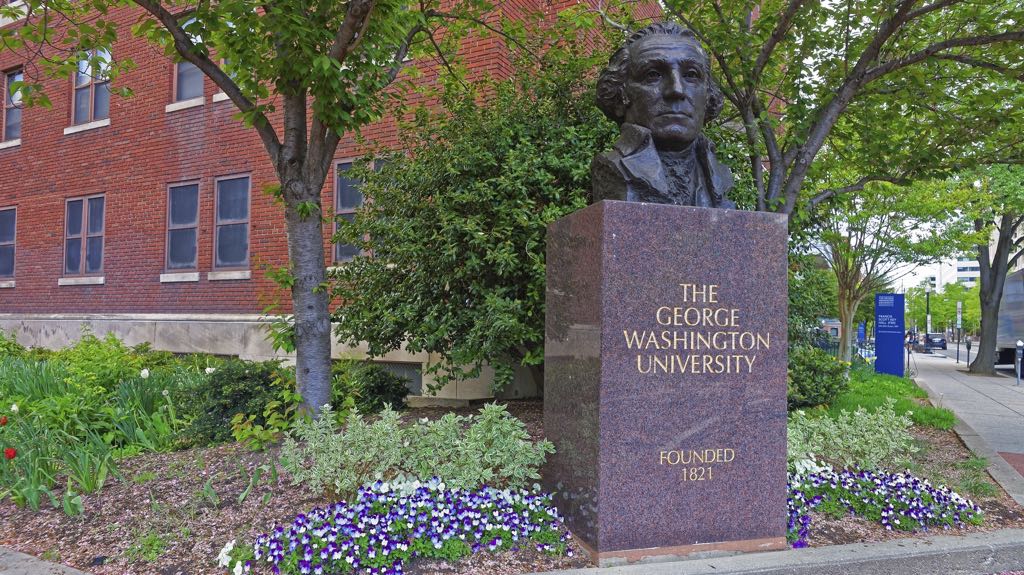Has the Kochtopus wrapped its tentacles around George Washington University too?
GW’s Regulatory Studies Center is, according to the university’s website, a “leading source for applied scholarship in regulatory issues.” Its director, Susan Dudley, founded the organization in 2009, after serving as George W. Bush’s regulatory czar, in order to “raise awareness of regulations’ effects and improve regulatory policy through research, education, and outreach.” Since that time, the center has grown into a 16-person team of scholars, professors and others.
“What we present,” Dudley said in a video posted on the Federalist Society’s blog, “is an objective, unbiased look at the regulatory system with our academic credentials.”
But according to a new report by the watchdog group Public Citizen, this academic enclave at one of Washington’s signature universities is little more than a front group for wealthy industrialists looking to further their anti-government agenda.
While GW’s Regulatory Studies Center does not provide a full accounting of all of its funding, Public Citizen found that it has received more than $1 million from the Charles Koch Foundation and more than $1 million from the ExxonMobil foundation, as well as additional financial support from the U.S. Chamber of Commerce, the Business Roundtable, and similar groups. At the same time, 75 percent of the public comments submitted by the Center’s team members between 2013 and 2018 were written or coauthored by people with ties to Koch-funded groups. And the conclusions its scholars reach, according to Public Citizen, closely reflect the priorities of its wealthy backers.
From Public Citizen’s report:
“Of public comments submitted by RSC researchers between 2013 and 2018 that included recommendations that would affect the stringency or prevalence of regulation:
• 96 percent of the comments relating to the stringency of specific regulations recommended less regulation than the proposal or status quo.
• 100 percent of the comments relating to overarching regulatory policy recommended changes that would result in less regulation in the future.”
Taylor Lincoln, the director of research at Public Citizen’s Congress Watch and the author of the study, wrote that “it is not appropriate for George Washington University, or any university, to enable a corporate-funded, anti-regulatory group to masquerade as a neutral center of academic inquiry.”
GW spokesman Jason Shevrin said the Regulatory Studies Center’s financial backers don’t influence its scholars work. In a statement to Washingtonian, he said that the university values academic freedom and strives for ideological diversity, adding that the Center’s scholars have published research in respected peer-reviewed journals and been recognized by the American Bar Association and other organizations in their fields.
“The Center receives support for its activities from governments, foundations, companies, and individuals,” Shevrin said. “It does not accept funding that is conditioned on hiring (or retaining) particular individuals, nor that influences the content or conclusions of its work.”
Tonya Mullins, a spokesperson for the Koch foundation, dismissed Public Citizen’s report an effort to harass GW’s researchers. “We support scholars with a long track record of high-quality work on issues of consequence at more than 350 schools,” Mullins said in a statement. “Faculty call the shots and follow their research wherever it may lead—as they should. That openness is characteristic of and imperative to academy discovery. We’ll continue to speak out against tactics like this aimed at harassing scholars rather than engaging issues on their substance—wherever those attacks originate.”
Allegations of financial influence on academic research have long centered around the Mercatus Center, a Koch-supported think tank based at George Mason University. But the Kochs have in recent recent years dramatically expanded their college-campus reach. According to data that Public Citizen included in its report, Koch foundations increased their contributions to universities from $2.3 million in 2005 to $62.2 million in 2017.
“It appears that they really are ramping it up,” Lincoln, the study’s author, said in an interview.
Public Citizen recommends that GW either shut down the Regulatory Studies Center or take action to “ensure that it is not merely serving as a cog in an industry-backed campaign to attack regulation.”
Full Statement from GW spokesman Jason Shevrin:
The George Washington University values rigorous research and academic freedom; it strives for ideological diversity by fostering open inquiry across its many departments and disciplines. The GW Regulatory Studies Center, led by director Susan Dudley and co-directors Joseph Cordes and Christopher Carrigan, is a chartered academic center in the Columbian College of Arts and Sciences, Trachtenberg School of Public Policy and Public Administration. Its mission is to improve regulatory policy through research, education, and outreach. RSC scholars publish their research in respected, peer-reviewed academic journals, such as J. Policy Analysis and Management, Risk Analysis, J. Benefit-Cost Analysis, Supreme Court Economic Review, and Administrative Law Review; their expertise and achievements are recognized by leading organizations in their fields, including the Administrative Conference of the United States, the National Academy of Public Administration, the Society for Benefit-Cost Analysis, the American Bar Association, and the Southern Economics Association.
The Center supports graduate Trachtenberg School students through research opportunities, stipends that allow them to take unpaid internships in government agencies, and career guidance. Its well-attended events feature insights on regulatory policy and practice from diverse individuals across the ideological spectrum, including members of Congress, high-ranking officials from each of the last six administrations, international diplomats and academics, and legal, policy, and economic scholars.
The Center receives support for its activities from governments, foundations, companies, and individuals. It does not accept funding that is conditioned on hiring (or retaining) particular individuals, nor that influences the content or conclusions of its work.


![Luke 008[2]-1 - Washingtonian](https://www.washingtonian.com/wp-content/uploads/2017/10/Luke-0082-1-e1509126354184.jpg)












